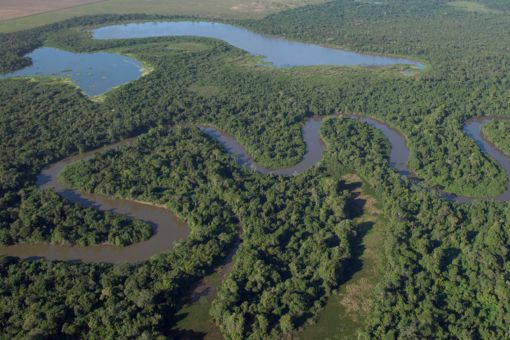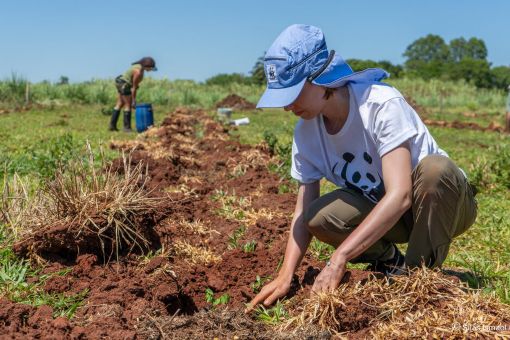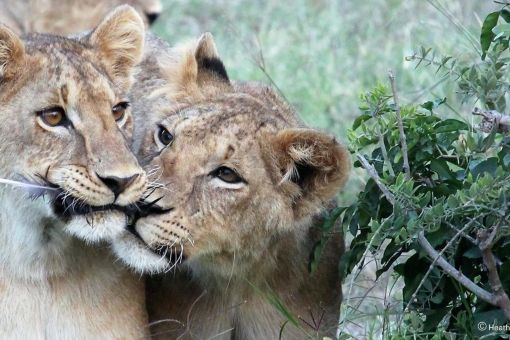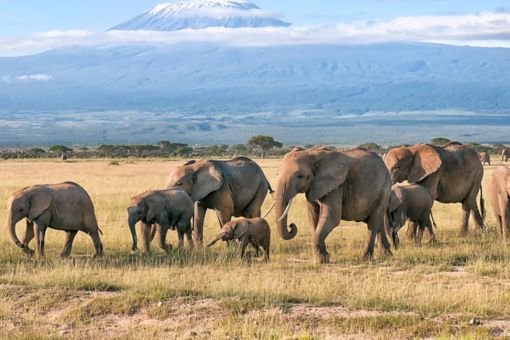Image © Bea Binka
By joining the Science-Based Target Initiative (SBTi), we have committed to reducing our greenhouse gas emissions by 50 per cent by 2030. We are also making a contribution to global climate protection and have entered into a partnership with WWF Germany for this purpose.
Our collaboration with the WWF
As part of our sponsorship programme, we are financing two nature conservation projects: in the Unganisha nature reserve in East Africa and in the Cerrado in Brazil. Both projects not only have climate protection as their primary goal, but also the protection of the global common goods of water and biodiversity. Furthermore, the success of both projects is essentially based on the involvement of the local and indigenous population.
The projects are financed with funds from KPMG's internal CO2 pricing, which we use as part of our "Our Impact Plan" sustainability programme to document the company's own emissions and create additional incentives for sustainable action.
Through our partnership with the WWF, we want to further underpin our climate protection efforts. By investing in nature conservation projects, we are taking on additional responsibility. We want to make a sustainable contribution and therefore pay particular attention to being able to measure and track the impact of our commitment.
The world must act quickly and collectively to achieve the 1.5 degree target of the Paris Climate Agreement. We at KPMG also have a responsibility that is reflected in our own climate targets. That is why we are working with the WWF to protect the climate and natural resources such as water and biodiversity outside of our own organisation."

Our projects with the WWF
The Brazilian Cerrado
This area, which, like the Amazon rainforest, plays a key role in protecting the climate and preserving biodiversity, is currently under severe threat from soya cultivation. Many indigenous peoples and communities live in this region and are dependent on a healthy ecosystem. WWF is using our funds to implement a nature conservation project in the Cerrado with the aim of restoring large areas of the original landscape. In the degraded areas, the focus is on restoring the ecosystems, including improving water quality and supply, protecting biodiversity and CO2 sequestration through reforestation and land conservation

Image © Jaime Rojo / WWF-US

Image © Silas Ismael / WWF-Brazil
The Unganisha nature region
This region is home to eight national protected areas, including the Serengeti and Kilimanjaro National Parks. Fences, roads and irrigated maize cultivation are increasingly blocking the migration routes of native animals. WWF's aim is to connect the Mara-Serengeti, Amboseli-Kilimanjaro and Tsavo-Mkomazi landscapes, which are already largely protected, so that a large-scale network of protected areas can be created. In Unganisha, we are investing in an existing and ongoing WWF project that brings together conservationists, governments and people in the region.

Image © Heather Allen

Image © Bea Binka
Your contacts
Stay up to date with what matters to you
Gain access to personalized content based on your interests by signing up today
Thomas Löhmer
Partner, Central Services, Head of Our Impact Plan Germany
KPMG AG Wirtschaftsprüfungsgesellschaft
Mara Zimen
Division Manager, Sustainability Officer
KPMG AG Wirtschaftsprüfungsgesellschaft
Connect with us
- Find office locations kpmg.findOfficeLocations
- kpmg.emailUs
- Social media @ KPMG kpmg.socialMedia

